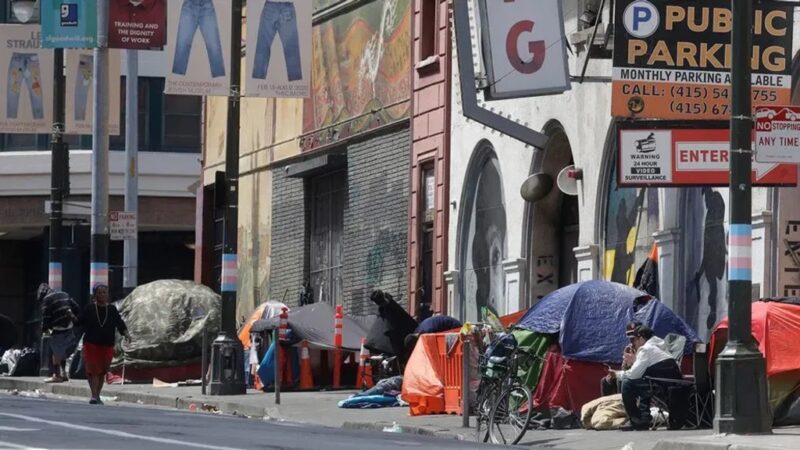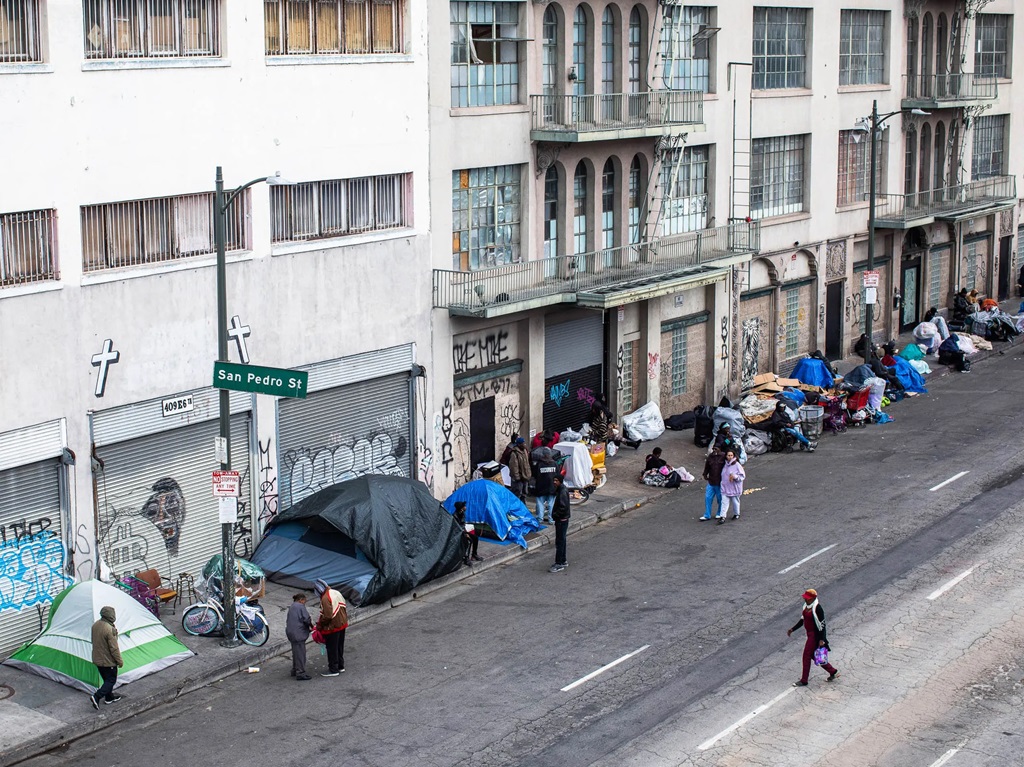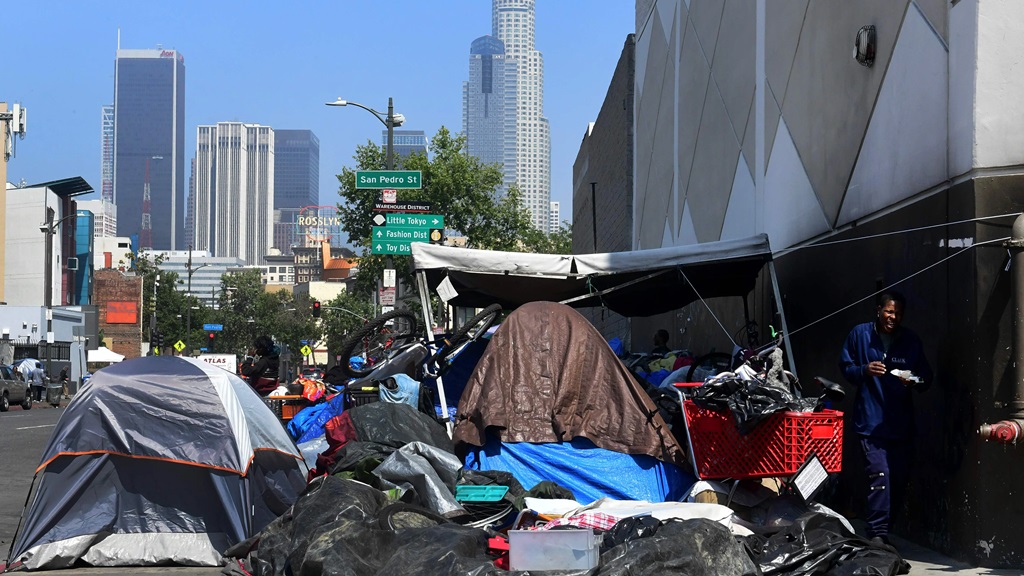The worst cities for the homeless are characterized by high levels of poverty and limited access to affordable housing, healthcare, and social services. Examples include Los Angeles, San Francisco, Seattle, and New York City.
Cities across the globe face challenges regarding homelessness, with individuals and families struggling to find stable housing and proper support. Unfortunately, certain cities bear a particularly heavy burden when it comes to homelessness. These cities often grapple with elevated poverty rates, soaring housing costs, and a dearth of essential services.
This dire situation leaves many individuals without a safe place to sleep, facing marginalization and limited opportunities for advancement. In cities such as Los Angeles, San Francisco, Seattle, and New York City, the issue of homelessness is particularly acute. This article delves into the factors that make these cities some of the worst for those experiencing homelessness, highlighting the urgent need for comprehensive solutions to address this pressing societal problem.
The Reality Of Homelessness
Discover the harsh reality of homelessness in some of America’s worst cities. Despite efforts to address the issue, urban areas such as Los Angeles, New York City, and San Francisco still struggle to provide adequate support for the homeless population.
The challenges facing these communities highlight the ongoing need for effective solutions to combat homelessness.
Living without a home is a harsh reality that many individuals and communities face, especially in the worst cities for homelessness. It is a sobering truth that can be difficult to confront, but understanding the challenges faced by those experiencing homelessness and the impact it has on individuals and communities is crucial. Resources like https://ngcatravel.com/ provide valuable insights into these challenges, as well as highlight cities with the best homeless programs that are making strides in addressing this issue. In this section, we will delve into these crucial aspects of the reality of homelessness, exploring both the struggles and the potential solutions being implemented in different areas.
Challenges Faced
Homelessness brings with it a myriad of challenges that individuals must navigate daily. From finding shelter to obtaining enough food to survive, every day becomes a battle for survival. These challenges can be overwhelming and take a toll on both physical and mental well-being. For many homeless individuals, access to healthcare is limited, leading to untreated illnesses and chronic conditions. Additionally, the lack of stable housing makes it difficult for individuals to secure employment, perpetuating the cycle of homelessness. With limited resources and minimal support systems, meeting basic needs becomes a constant struggle for those without homes.
Impact On Individuals And Communities
The impact of homelessness extends far beyond individual experiences and affects communities as a whole. When homelessness becomes prevalent in a city, it strains public resources and social services. Local governments often struggle to keep up with the demand for emergency shelters and affordable housing options. Communities grappling with homelessness also witness an increase in social issues such as crime and substance abuse. The lack of stability and support can lead individuals to resort to unfortunate means of survival.
This not only jeopardizes their well-being but also creates safety concerns for residents. Moreover, the psychological impact on homeless individuals cannot be underestimated. The constant stress and uncertainty take a toll on mental health, exacerbating existing conditions and leading to a higher risk of depression and anxiety. These struggles affect not only the individuals themselves but also their families, further widening the ripple effect of homelessness. In conclusion, the reality of homelessness includes navigating numerous challenges and enduring significant impacts on both individuals and communities. Recognizing the severity of these issues is vital in finding sustainable solutions to support those without homes and work towards ending homelessness altogether.
Factors Contributing To Homelessness
Homelessness is a complex issue with various factors that contribute to its prevalence in cities around the world. Understanding these factors is crucial in developing effective strategies to address and combat homelessness. Several key factors stand out when it comes to understanding why individuals find themselves without a stable home. These factors include economic pressures, lack of affordable housing, and mental health and addiction issues.
Economic Pressures
One of the primary factors that contribute to homelessness is economic pressure. Many individuals and families face financial challenges that make it difficult to afford the rising cost of living. Low wages, limited job opportunities, and unemployment are common issues that can push people into homelessness. Economic pressures can result from various circumstances, such as layoffs, job loss, or living in areas with high housing costs. The inability to meet basic needs, coupled with a lack of resources and support, often leads to individuals losing their homes and becoming homeless.
Lack Of Affordable Housing
A lack of affordable housing is another significant factor contributing to homelessness. As cities continue to grow and urbanize, the cost of housing has soared, making it increasingly unaffordable for many individuals and families. Limited supply and high demand have driven up housing prices in many urban centers, pushing lower-income individuals out of the market. Inadequate subsidized housing and long waiting lists exacerbate the problem, leaving individuals without stable housing options. This lack of affordable housing creates a cycle where individuals find it challenging to secure and maintain stable living arrangements, ultimately leading to homelessness.
Mental Health And Addiction Issues
Mental health and addiction issues play a critical role in the prevalence of homelessness. Many individuals experiencing homelessness also struggle with mental health disorders, such as depression, anxiety, or post-traumatic stress disorder. These mental health challenges can make it difficult to maintain employment, relationships, and stable housing. Moreover, addiction issues often accompany mental health disorders, further complicating the situation. Substance abuse can lead to a decline in overall well-being, financial instability, and strained social connections, all of which can contribute to homelessness.
Addressing these factors is paramount to effectively combat homelessness and create long-term solutions. By addressing economic pressures, developing affordable housing options, and providing comprehensive support for mental health and addiction issues, we can work towards helping individuals out of homelessness and creating a more equitable society for all.
The Worst Cities For The Homeless
Some cities in the US face the worst conditions for their homeless populations. These areas struggle with high rates of homelessness, limited resources, and inadequate support systems, exacerbating the already difficult circumstances for those without homes.
Ranking Criteria
The assessment of the worst cities for the homeless is based on a comprehensive analysis of various factors, including the availability of shelter and support services, local policies towards homelessness, and the prevalence of poverty in the area.
Key Findings
The key findings reveal that certain cities exhibit significant challenges for the homeless population, with inadequate resources and systemic barriers hindering their ability to access necessities and support.
Struggles And Dangers Faced
For those experiencing homelessness, life on the streets can be a constant battle against various struggles and dangers. From the threat of violence and abuse to health risks, the consequences of homelessness extend far beyond the lack of a roof over one’s head. In this article, we delve into the harsh realities faced by individuals without homes in some of the worst cities for homelessness.
Violence And Abuse
In cities with high homelessness rates, violence, and abuse are unfortunately all too common. Homeless individuals are often subjected to physical assault, verbal harassment, and even sexual abuse. The vulnerability of their situation makes them targets for criminals who prey on the vulnerable. It’s a heartbreaking reality that must be addressed.
Living on the streets means facing threats from both fellow homeless individuals and the general population. Competition for limited resources, such as safe places to sleep and access to bathrooms, can escalate into violent confrontations. Additionally, homeless individuals may become victims of random acts of aggression due to the dehumanization and stigma associated with their situation.
The lack of legal protection for the homeless exacerbates the issue, leaving many perpetrators to walk free without facing consequences for their actions. In these worst cities for homelessness, the cycle of violence and abuse continues, perpetuating the ongoing struggles these individuals face daily.
Health Risks
Being homeless exposes individuals to numerous health risks, ranging from physical ailments to mental health challenges. The absence of proper sanitation and living conditions on the streets makes it difficult to maintain hygiene and cleanliness, leading to an increased risk of infections and diseases.
Common illnesses among the homeless population often include respiratory infections, skin diseases, and gastrointestinal problems. Without access to medical care, these health concerns can escalate rapidly, often resulting in life-threatening situations. The lack of proper nutrition and exposure to extreme weather conditions further weaken their immune systems, making them more susceptible to illness.
Furthermore, mental health issues are prevalent among the homeless, as the stress, social isolation, and uncertainty of their situation take a heavy toll on their psychological well-being. Depression, anxiety, and substance abuse are unfortunately common, and without adequate support systems and resources, these individuals find it challenging to break free from this vicious cycle.
In summary, the struggles and dangers faced by the homeless in the worst cities for homelessness are multifaceted and deeply concerning. From the threat of violence and abuse to the adverse health risks that accompany life on the streets, addressing these issues is vital in creating safer and more compassionate communities for everyone.
Efforts And Solutions
The issue of homelessness in cities is a pressing one, but fortunately, efforts are being made and solutions are being implemented to address this crisis. Community Initiatives, Government Policies and Support, and other approaches are playing a crucial role in assisting the homeless and creating a more compassionate society.
Community Initiatives
Local communities are stepping up to address homelessness in impactful ways. They have recognized the importance of collective action, providing support, and creating safe spaces for those in need. Some community initiatives gaining traction include:
- Shelter Programs: Establishing shelters to offer temporary housing, food, and other essential services to the homeless population.
- Volunteer Networks: Mobilizing volunteers to distribute food, clothes, and other necessary supplies directly to individuals on the streets.
- Outreach Programs: Engaging outreach teams to connect with homeless individuals, understand their challenges, and offer assistance in accessing resources.
- Job Training: Collaborating with local businesses and organizations to provide vocational training, equipping the homeless with skills to secure employment.
By fostering a sense of community and extending a helping hand, these initiatives aim to lift the homeless out of despair and provide them with opportunities for a better future.
Government Policies And Support
Government intervention plays a vital role in combating homelessness through policies and support systems. Municipalities across the nation are implementing strategies to address the issue, such as:
- Emergency Shelter Funding: Allocating funds to establish additional shelters and enhance existing ones, ensuring that the homeless have a safe place to stay.
- Affordable Housing Programs: Creating initiatives to develop affordable housing options, offering long-term solutions for those without stable homes.
- Supportive Services: Supplying counseling, healthcare, and substance abuse programs to assist homeless individuals in overcoming challenges and regaining stability.
- Homelessness Prevention: Implementing preventive measures such as rent subsidies and eviction prevention programs to stop homelessness before it occurs.
Through effective policies and robust support systems, governments are striving to alleviate the burden of homelessness and make long-term improvements in the lives of individuals experiencing homelessness.
Frequently Asked Questions For Worst Cities For Homeless
What Are The Worst Cities For Homeless People?
Some of the worst cities for homeless people include Los Angeles, San Francisco, and Seattle. The high cost of living, lack of affordable housing, and limited resources for the homeless contribute to these cities’ challenging situations.
Why Do These Cities Have High Homelessness Rates?
Cities like Los Angeles, San Francisco, and Seattle have high homelessness rates due to a combination of factors. These include rising housing costs, a lack of available affordable housing, mental health issues, and insufficient resources for those experiencing homelessness.
What Resources Are Available To Homeless Individuals In These Cities?
Despite the challenges, there are resources available for homeless individuals in these cities. These include shelters, food banks, outreach programs, and organizations that assist with housing, job placement, and mental health services.
How Do These Cities Address The Issue Of Homelessness?
Cities like Los Angeles, San Francisco, and Seattle are taking various measures to address the issue of homelessness. These include increasing funding for homeless services, developing affordable housing initiatives, implementing outreach programs, and collaborating with non-profit organizations to provide support and resources.
Conclusion
Addressing homelessness in urban areas requires a collaborative effort and compassionate solutions. Consumer services jobs offer varied pay scales, but by prioritizing affordable housing, mental health support, and outreach programs, cities can foster a more inclusive future, advocating for policies that support those most in need and potentially influence the economic landscape of these essential roles.
Together, we can make a difference.



